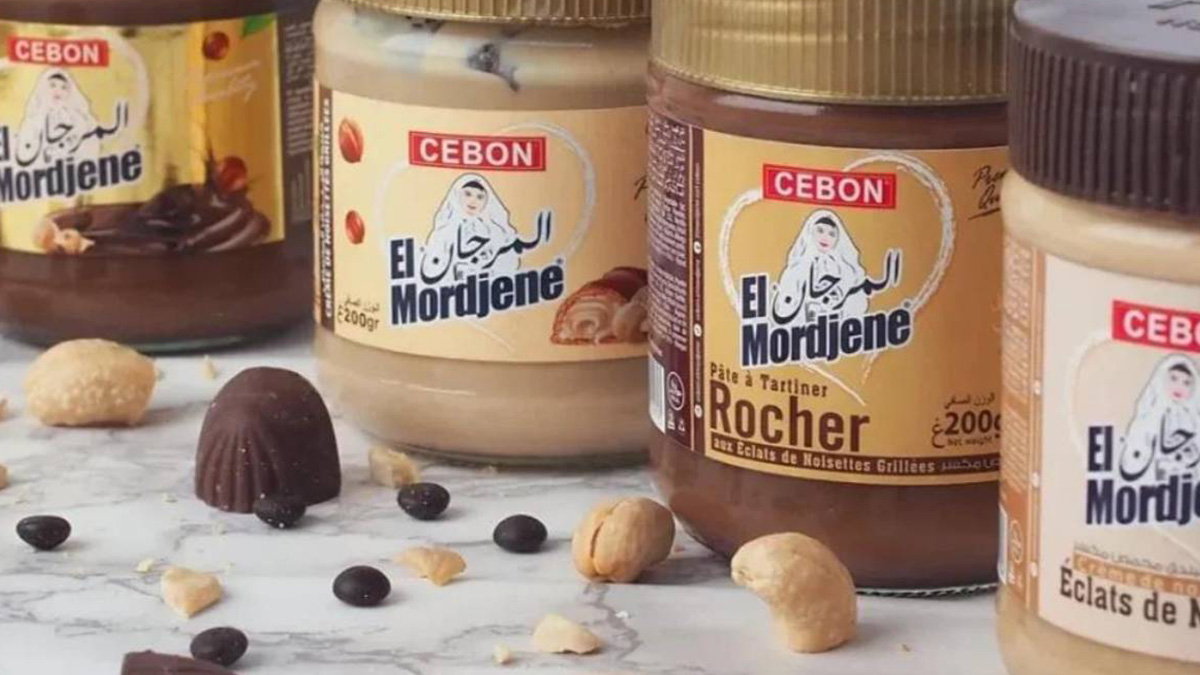For a few days now, El Mordjene has been the subject of debate. This “chestnut spread” or “Algerian Nutella”, produced in Algeria, became a hit in France after its commercial launch. Many influencers have boosted this brand, rekindling Algerian pride. It was recently banned from the territory of the European Union, as Brussels unearthed a regulation stating that Algeria is not authorized to sell “dairy products” within the European Union.
The Algerian Nutella: A Timely Ban?
The issue arose when the president of the Algerian Association for the Protection and Guidance of Consumers and Their Environment (APOCE), Mustapha Zebdi, announced that “the latest shipment of El Mordjene paste was not allowed to be unloaded in Europe”. It was revealed that the famous spread is being held at the port of Marseille.
To justify the ban, Brussels relies on « Article 20, third paragraph, of European Union Regulation No. 2202/2292 », which prohibits Algerians from importing products containing dairy into Europe for health reasons. It is also likely that concerns related to the “Nutella” brand, produced by Italy’s Ferrero, contributed to El Mordjene being subjected to meticulous administrative scrutiny in Brussels.
Social media is ablaze with accusations that the ban is both tactical and opportunistic:
@syadel30 you’re just jealous of Algeria, TAHIA DJAZAIR, Algeria will keep surprising you all, you’ll see 👏🏽🇩🇿🇩🇿🇩🇿
♬ original sound – ADEL 👑
Comedians are also reacting to the issue:
Administrative Confusion: A Common Protectionist Strategy!
The company Cebon, which has marketed the product since 1997, has not responded. On the Algerian side, the ban is seen as a move to protect European products: “When our product started gaining popularity and posed serious competition to local brands, like Nutella, they immediately reacted by imposing new standards and stricter testing”, said Mr. Zebdi.
Mr. Zebdi is not wrong about the “cynicism” of the European decision. However, this type of protectionist administrative action is common around the world. The most well-known example is French cheese. Mimolette and Roquefort: these French cheeses have become a nightmare for Americans in recent months. According to them, they are “composed of disgusting, putrid, or decomposed substances”, and this “unfit food” is no longer welcome and is stopped at customs. The same goes for Roquefort.
Another example: the Italian Kinder egg is banned in Denmark for so-called “health reasons”.
In an op-ed for the newspaper Le Monde, researcher Ali Laïdi denounces a revolution in protectionism. In previous years, the main tactic of states flirting with protectionism was to increase customs duties. This overt protectionism is a thing of the past. Now we are witnessing an insidious form of protectionism worldwide:
“Then there are the states that, while resisting the temptation to significantly increase tariffs, are not hesitating to counter their competitors who engage in dumping or apply non-tariff measures: exchange rates, local content requirements, social and environmental standards… The following crises – Brexit, the election of Donald Trump, Covid-19, and the war in Ukraine – have radicalized this trend.”
In most Western countries, from Trump’s and Biden’s America to France under Montebourg and Marine Le Pen, the protectionist temptation is growing in response to the rise of certain industries in Asia. In France, both the left and right despair over the country’s trade deficit. Sanitary and environmental regulations have become the foundation for a new industrial patriotism.
